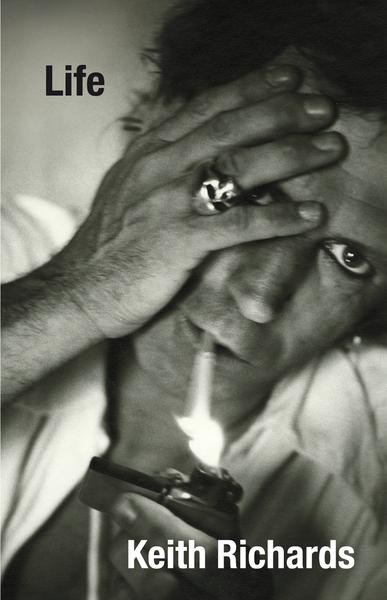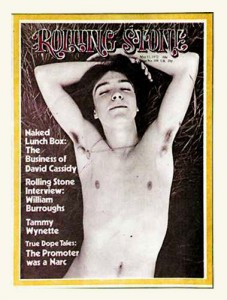by Jas Faulkner
author’s note: This is very, very late. Late as in this should have gone live on Friday late. Next week is the start of a new era at Bookshop Blog. I won’t go into details. Let me just say that I think you’re going to like what you see. One change I can tell you about is that my columns will now appear every Thursday. What else is happening at BSB? You’re going to have to come back to find out. Now, on with this week’s column…

The date and time stamp thingie on the lower right hand corner of my screen says it’s 2:20 pm and the date is 8/3/2012.
Here is the list of top 20 best selling music biographies as of that moment on Amazon.com:
20. No Regrets by Joe Lyden and Ace Frehly
19. Bruce Sringsteen and the Promise of Rock n’ Roll by Marc Dolan
18. Seven Deadly Sins: Settling the Argument Between Born Bad and Damaged Good by Corey Taylor (Slipknot)
17. Mercury by Lesley-Ann Jones
16. When I Left Home: My Story by Buddy Guy and David Ritz

15. 1d in America parts 1, 2, 3 and 4 Special Edition (Niall’s unofficial diary) by 1d Fans International
14. It’s So Easy by Duff McKagan (Guns and Roses)
13. 1d in America Part 1 (Niall’s unofficial diary) by 1d Fan International
12. I Am Ozzy by Ozzy Osborne and Chris Ayres
11. Slash by Slash and Anthony Bozza
10. The Long Hard Road Out of Hell by Neil Strauss and Marylin Manson
9. The Heroin Diaries by Nikki Sixx
8. Scar Tissue by Anthony Kiedis and Larry Soloman
7. Does the Noise in My Head Bother You?: A Rock ‘n’ Roll Memoir by Steven Tyler
6. Just Kids by Patti Smith
5. 101 Amazing One Direction Facts by Jack Goldstein
4. My Cross To Bear by Gregg Allman
3. Love Is the Cure: On Life, Loss, and the End of AIDS by Elton John
2. Mick by Christopher Andersen
1. Life by Keith Richards

With the exception of the book-like things manufactured for fans of One Direction, most of these titles are fairly weighty tomes that chronicle long, productive professional lives. The salad days of most of the subjects on that list were sometime in the late twentieth century. Is this just a case of authors and artists actually heeding the adage that biographies and autobiographies are best written when one’s work has stood the test of time? My inner cynic says no. This is simply what the market is favouring right now. Here’s why:
On September 13th, eighteen-year-old Justin Beiber will release a second autobiographical work, “Just Getting Started”.
I’ll let that sink in.
Eighteen year old. Justin Beiber. Has written a SECOND volume of his autobiography.
You and I and everyone we can imagine knows that while Bieber may think his every precious thought deserves the permanence of the printed page, the truth is that publishers see this as units to be sold to his fan base. We also know that at least for a few weeks, maybe months, Bieber’s book will outsell everything on that list right now.
Inner Gandhi might point out that everyone has a story to tell and there is something we can learn from Justin Bieber. Okay, so let’s be all Mohandas about it and say, Justin Bieber has a story to tell and it’s too damned big for two books and… No. I’m sorry. I can’t go there. Not when Mick and Keef are out there enacting the t-shirt wisdom that a life well-lived means skidding to a stop at the end of the ride with every groove and tread worn bare, shouting, “That was fun!”

In the interest of being a little more…disciplined, I should point out that these sanitised inspirational pamphlets masquerading as invitations into the dream factory that churns between the ears of every dancing, singing human incarnation of My Little Pony is a far cry from the 1972 issue of Rolling Stone that featured Tiger Beat heartthrob David Cassidy sprawled across the cover in a louche pose that suggested there was more to him than the unthreatening big brother image he projected on the Partridge Family. The interview inside revealed that Cassidy was ready to move on to a serious career in music. The photos inside also revealed that Keith Partridge was indeed a grown man.
Getting back to the list… The temporal hangtags that are heavily represented reflect a decade when music journalism had evolved into serious business. Creem and Rolling Stone and NME and the music section of The Village Voice presented in-depth pieces that dealt with deeper issues than turn-ons and favourite colours. Musicians who achieved the prerequisite degree of success to warrant coverage knew they would have to be able to hold forth about their creative process and speak eloquently about their world view. The articles that resulted from those interviews were leisurely reads, one to three thousand word strolls through the lives of the people who were the bardic voices of a generation.
Maybe that explains the popularity of these biographies. The artists who used the media as a moving, evolving diary for years are continuing a life witnessed by their confession to the keyboard and sometimes to ghost writers for the same audience that once eagerly bought the latest issue of their music and culture magazine of choice to be read between shifts at that first job or in the down time between Intro to Poli Sci and French 101. Just as surely as the milk crate of vinyl LPs has given way to musical libraries that are now rented and can be held in one’s palm. The former was the mindless disposability of the youthful conceit that all of this would keep regenerating itself over and over ad infinitum that was reflected by the weekly and biweekly broadsides has been replaced by the mature permanence of books.
The beat goes on, one page at a time.
